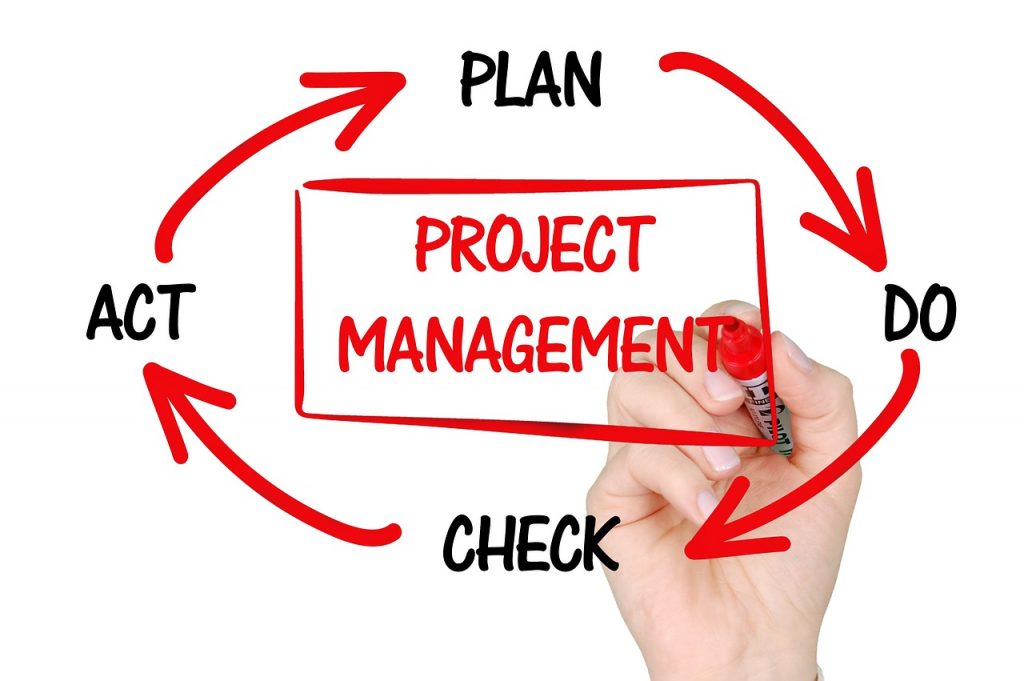Selecting the right Customer Relationship Management (CRM) software is crucial for the success of your business. A well-implemented CRM system can help streamline your customer management processes, enhance customer relationships, and drive business growth. By understanding your specific business needs, evaluating key CRM features, and considering pricing and implementation factors, you can find the CRM solution that best fits your organization.
Understanding Your Business Needs
Before choosing a CRM software, it’s essential to clearly define your business goals and evaluate your current customer management processes. This will help you identify the specific features and functionalities you require in a CRM system.
Defining Your Goals
When determining your goals for a CRM system, consider the following objectives:
- Improving Customer Service: Enhance customer satisfaction and retention through better communication, issue resolution, and personalized experiences.
- Increasing Sales: Streamline the sales process, improve lead management, and optimize the sales funnel.
- Streamlining Operations: Automate repetitive tasks, centralize customer data, and improve team collaboration.
- Enhancing Marketing Efforts: Better understand customer behavior, personalize marketing campaigns, and measure the effectiveness of your marketing initiatives.
Assessing Current Processes
Evaluate your existing customer management processes to identify areas for improvement. Compare your current methods with the desired outcomes you want to achieve with a CRM system. This will help you pinpoint the gaps and determine the specific features and functionalities you need.
| Current Process | Desired Outcome |
|---|---|
| Scattered customer data across multiple systems | Centralized customer database with a 360-degree view |
| Manual lead tracking and segmentation | Automated lead management and advanced segmentation |
| Inefficient communication and collaboration between teams | Improved team collaboration and real-time data sharing |
| Limited reporting and analytics capabilities | Comprehensive reporting and data-driven decision making |
Determining User Requirements
Gather input from different departments within your organization, including sales, marketing, customer service, and IT. Understand the specific needs and pain points of each team to ensure the selected CRM software meets the requirements of all its users.
- Sales Team: Sales pipeline management, lead scoring, and advanced forecasting
- Marketing Team: Campaign management, lead generation, and marketing automation
- Customer Service Team: Ticket management, knowledge base, and customer self-service
- IT Team: Integration with existing systems, scalability, and data security
Key Features to Look for in CRM Software

When evaluating CRM software options, consider the following essential features:
Contact Management
Robust contact management capabilities are crucial for effectively managing customer relationships. Look for features such as:
- Customer Profiles: Comprehensive customer information, including contact details, purchase history, and communication records.
- Interaction History: Centralized repository of all interactions and touchpoints with customers.
- Segmentation and Tagging: Advanced customer segmentation and tagging for targeted marketing and personalized outreach.
Sales and Lead Management
Effective sales and lead management tools can help streamline your sales processes and improve conversion rates. Key features to consider include:
| Feature | Description |
|---|---|
| Sales Funnel Visualization | Visual representation of the sales pipeline to track deal progression |
| Lead Scoring and Prioritization | Automated lead scoring and prioritization based on predefined criteria |
| Opportunity Management | Centralized management of sales opportunities, including probability of closing and estimated revenue |
Integration Capabilities
Look for CRM software that can seamlessly integrate with your existing business tools and systems, such as:
- Email Platforms: Sync customer communications and schedule meetings directly from the CRM.
- Calendars and Scheduling: Facilitate team collaboration and customer appointment scheduling.
- Marketing Automation: Integrate with marketing platforms to automate lead nurturing and campaign management.
Reporting and Analytics
Comprehensive reporting and analytics features are essential for data-driven decision-making. Key reports and metrics to consider include:
- Sales Performance: Tracking of sales targets, pipeline, and conversion rates
- Customer Insights: Detailed customer behavior analysis and segmentation
- Marketing Effectiveness: Measuring the impact of marketing campaigns and lead generation efforts
Evaluating CRM Software Options
Researching and evaluating different CRM software options is a crucial step in finding the right solution for your business.
Researching CRM Vendors
Start by researching and shortlisting potential CRM vendors. Compare their features, pricing, and user reviews to create a list of top contenders.
| Vendor | Features | Pricing | User Reviews |
|---|---|---|---|
| Salesforce | Comprehensive CRM suite, advanced reporting, and extensive integrations | Subscription-based, starting at $25 per user per month | 4.5/5 stars on G2 |
| HubSpot CRM | Free CRM with basic features, easy to use, and strong marketing automation capabilities | Free for up to 1 million contacts, paid plans start at $45 per month | 4.7/5 stars on G2 |
| Zoho CRM | Highly customizable, great for small to medium-sized businesses, and affordable pricing | Subscription-based, starting at $14 per user per month | 4.4/5 stars on G2 |
Requesting Demos and Trials
Take advantage of free trials and demos offered by CRM vendors. This will allow you to evaluate the software’s user interface, functionality, and ease of use. Pay attention to the following during the demo:
- Intuitive Navigation: Assess how easy it is to navigate the CRM and perform common tasks.
- Feature Availability: Ensure the CRM software offers the essential features you require.
- Integration Capabilities: Test the CRM’s integration with your existing tools and systems.
- Reporting and Analytics: Evaluate the depth and flexibility of the reporting and analytics features.
Gathering Feedback from Users
Involve your team members who will be using the CRM system in the evaluation process. Gather their feedback on the software’s usability, functionality, and ability to meet their specific requirements.
Key questions to ask during feedback sessions include:
- How user-friendly is the CRM software?
- Does it address the pain points of your department?
- How well does it integrate with your current workflows?
- What features do you find most valuable or lacking?
Pricing and Budget Considerations

When selecting CRM software, it’s essential to consider the various pricing models and budget implications.
Understanding Pricing Models
CRM software can have different pricing models, including:
| Pricing Model | Description |
|---|---|
| Subscription-based | Recurring monthly or annual fee based on the number of users or features |
| One-time Purchase | Upfront payment for the software license, with optional ongoing maintenance fees |
| Per-user Pricing | Cost per individual user, often with different tiers based on user roles and functionality |
Total Cost of Ownership
In addition to the base software cost, consider the total cost of ownership (TCO), which includes:
- Implementation and Onboarding: Costs associated with data migration, system configuration, and user training
- Ongoing Maintenance and Support: Fees for software updates, bug fixes, and technical support
- Additional Integrations: Costs of integrating the CRM with other business systems and tools
Balancing Cost and Features
When evaluating CRM software options, aim to strike a balance between cost and the features that provide the most value to your business. Consider the following factors:
- Business Priorities: Focus on the essential features that directly address your identified goals and requirements.
- Scalability: Ensure the CRM can grow with your business and accommodate future needs.
- Long-term Cost Savings: Look for features that can streamline operations and improve efficiency, potentially offsetting the software cost.
Implementation and Adoption
Successful implementation and user adoption are crucial for the long-term success of your CRM system.
Planning the Implementation
Develop a comprehensive implementation plan that includes the following steps:
- Assign a Project Team: Designate a dedicated project manager and cross-functional team to oversee the implementation.
- Define Roles and Responsibilities: Clearly define the roles and responsibilities of each team member involved in the implementation.
- Migrate Customer Data: Ensure a seamless data migration process from your existing systems to the new CRM.
- Configure the CRM: Customize the CRM software to align with your business processes and user requirements.
- Test and Validate: Thoroughly test the CRM system to ensure it’s functioning as expected before full deployment.
Training and Support
Provide comprehensive training and ongoing support to ensure a smooth CRM adoption by your team. Consider the following options:
| Training Method | Description |
|---|---|
| In-person Training | On-site or off-site training sessions led by the CRM vendor or your internal experts |
| Online Tutorials | Self-paced video tutorials, webinars, and documentation provided by the CRM vendor |
| Hands-on Workshops | Interactive training sessions where users can practice using the CRM software |
Measuring Success
Regularly evaluate the success of your CRM implementation by tracking key performance indicators (KPIs), such as:
- User Adoption Rate: Percentage of users actively utilizing the CRM system
- Lead Conversion Rate: Percentage of leads that convert into sales opportunities
- Customer Satisfaction: Measure of customer satisfaction and loyalty
- Productivity Improvements: Efficiency gains in customer management processes
Top CRM Software Recommendations
When it comes to CRM software, here are some top recommendations to consider:
Salesforce
Salesforce is a comprehensive CRM platform that offers a wide range of features, including sales automation, marketing tools, and advanced analytics. It is a popular choice for enterprises, but it can also be a good fit for small and medium-sized businesses.
Pros:
- Robust sales and marketing capabilities
- Extensive ecosystem of integrations and third-party apps
- Scalable and customizable to meet the needs of growing businesses
Cons:
- Comparatively higher pricing, especially for enterprise-level plans
- Steep learning curve for new users
HubSpot CRM
HubSpot CRM is a free, easy-to-use CRM platform that offers a range of features, including lead management, email integration, and reporting. It is well-suited for small and medium-sized businesses looking for a simple and intuitive CRM solution.
Pros:
- Free CRM with a robust set of features
- Seamless integration with HubSpot’s marketing, sales, and service hubs
- User-friendly interface and easy to set up
Cons:
- Limited functionality compared to enterprise-level CRM systems
- Additional features and integrations may require paid subscription plans
Zoho CRM
Zoho CRM is a highly customizable CRM solution that caters to businesses of all sizes. It offers a wide range of features, including sales automation, marketing campaigns, and customer service tools, at a competitive price point.
Pros:
- Highly customizable to fit the unique needs of your business
- Affordable pricing, especially for small and medium-sized businesses
- Extensive integration capabilities with other Zoho applications
Cons:
- May require more technical expertise to set up and configure
- Limited enterprise-level features compared to Salesforce or HubSpot
Conclusion
Selecting the right Customer Relationship Management (CRM) software is a crucial decision that can significantly impact your business’s success. By understanding your specific needs, evaluating key CRM features, and considering pricing and implementation factors, you can find the CRM solution that best fits your organization.
Remember to involve your team in the evaluation process, gather feedback, and measure the success of your CRM implementation. With the right CRM software in place, you can streamline your customer management processes, enhance customer relationships, and drive business growth.

